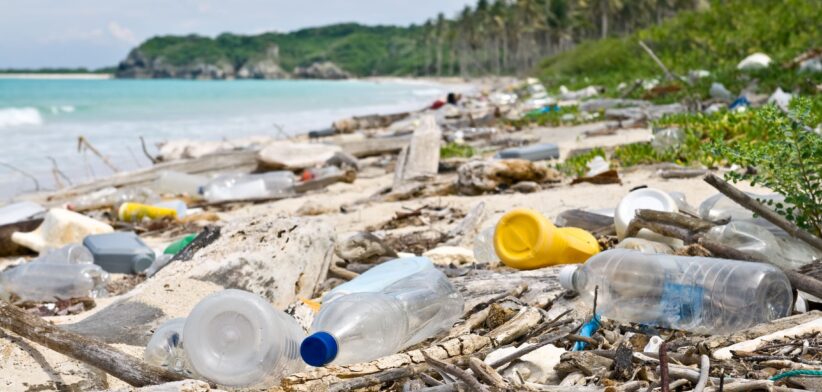A concerted global effort could almost eliminate plastics from entering the environment in less than 20 years.
A new OECD report has found comprehensive global policies addressing the entire plastics lifecycle could reduce plastic leakage into the environment by 96 percent by 2040.
OECD Environment Director Jo Tyndall said by implementing a mix of policies, from enhancing plastic waste management and recycling, to curbing plastic use and waste, countries could achieve significant environmental benefits and economic savings.
“Our analysis shows that ambitious policies across the entire plastics lifecycle, if implemented globally, could nearly eliminate plastic pollution by 2040,” Ms Tyndall said.
She said without stronger policies, plastics production and use were projected to increase by 70 percent, from 435 million tonnes (Mt) in 2020 to 736 Mt in 2040, with only six percent of plastics coming from recycled sources.
Ms Tyndall said in parallel, mismanaged plastic waste, i.e., plastics that at end of life were dumped, inadequately disposed of or littered, would increase by 50 percent (from 81 Mt annually in 2020 to 119 Mt annually in 2040).
“Leakage of mismanaged plastics into the environment, including their release into rivers, oceans, and land, will increase by 40 percent.”
The OECD report was released ahead of a round of UN talks in November to agree to a legally binding treaty on plastic pollution.
Ms Tyndall said partial solutions to plastics pollution would not solve the problem.
She said focusing solely on waste management without curbing production and demand would reduce plastic leakage to the environment by only 55 percent compared to business as usual by 2040.
“If plastic waste is better managed but without dedicated policies to reduce waste volumes, the costs of doing so will significantly increase, making it progressively more difficult for countries to eliminate plastic leakage.
“Similarly, policy packages with partial geographical coverage or with limited stringency would also fail to reduce plastics use, waste and leakage below 2020 levels.”
Ms Tyndall said OECD projections indicated that policies targeting all stages of the lifecycle, while resulting in a small drop (0.5 percent) in global GDP, were more cost-efficient compared to strategies focused solely on waste management.
She said the latter would lead to an even larger 0.8 percent GDP loss by 2040.
“Developing countries and those with less advanced waste management systems, particularly those in Sub-Saharan Africa, are projected to face the greatest macroeconomic costs.”
Read the full OECD report Policy Scenarios for Eliminating Plastic Pollution by 2040.








